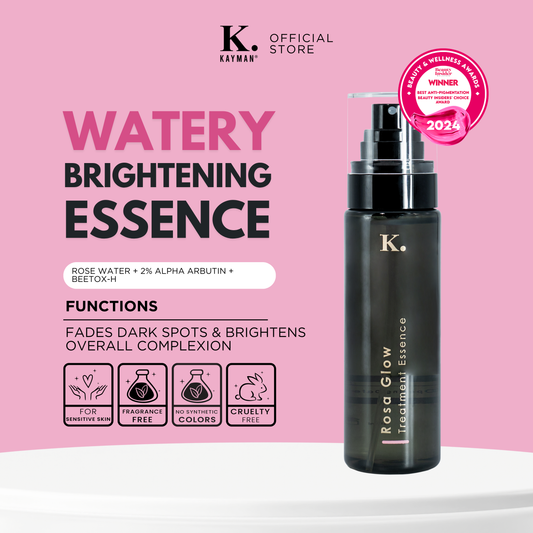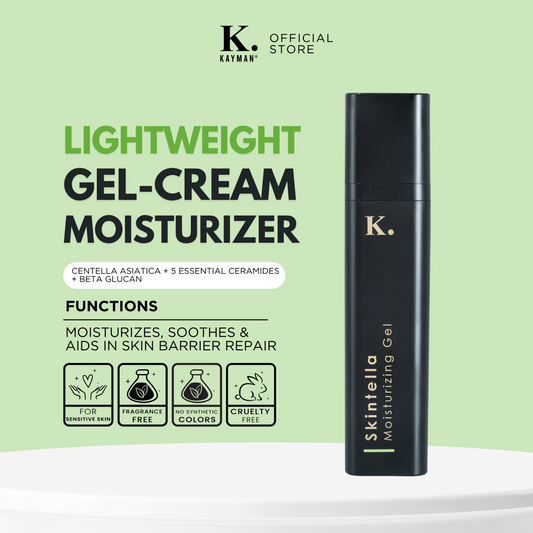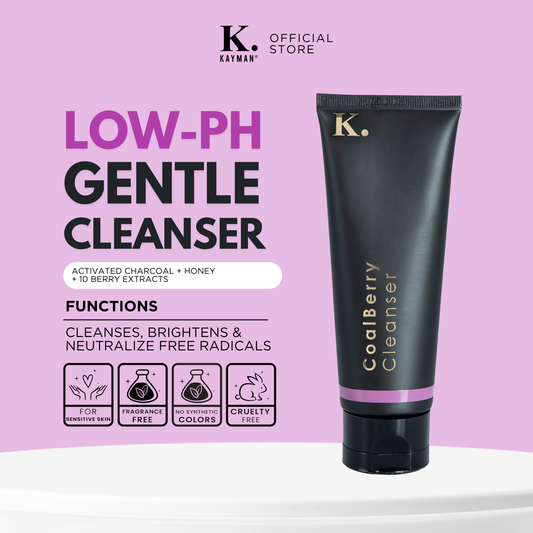WHAT EXACTLY ARE PARABENS?
Parabens are a group of popular preservatives that help to control the growth of microbes and prevent the development of harmful organisms that would jeopardize the quality and longevity of skincare and makeup products. They are popular due to cheap price yet effective performance. They also work very well in various kinds of products of different formulations, making it a sought-after, universal option. Some of the most commonly used parabens are methylparaben, ethylparaben, propylparaben and butylparaben.ARE PARABENS REALLY THAT BAD?
The anti-paraben sentiment started back in 2004, when a group of scientists published a study claiming that they found very small amounts of paraben in human breast tumour tissue. This was then widely reported in the media as evidence that parabens were linked to breast cancer. This study, however, holds no merit as more scientists from different organizations such as the FDA have come forward and publicly stated that there is no proof that parabens in skincare causes cancer.
Paraben was also said to act as estrogen disrupters. In a study published in 1998, it was said that parabens are able to bind to estrogen receptors and mimic the female sex hormones. This raised some red flags as excessive exposure to estrogen has been linked to the development of breast cancer and reproductive disorders.
But let’s be real – most ingredients applied to the skin do not get into the body at all. The natural role of the skin is to shield and protect the body from any foreign contaminant. If everything can pass through the skin, aren’t we supposed to get sick and suffer a painful death because of the shower cream we used this morning?
As of now, there is no certified health organization known to endorse the “parabens are harmful” notion. The EU Commission, which is often quoted to ban the usage of parabens in cosmetics by internet users, have in fact only limited the usage of paraben. They’ve only banned a total of five parabens, namely isopropyl-, isobutyl-, pentyl-, phenyl- and benzylparabens, but only due to the lack of data on its effect on human health and not due to safety hazards.
These 5 parabens are also banned by the ASEAN Cosmetic Committee, which means that all cosmetics made or sold in Malaysia (and other ASEAN countries) should not contain such ingredients. In short, there is yet to be actual proof that parabens cause cancer.
SO WHY IS “PARABEN-FREE” A THING?
Easy – it’s marketing. With the emergence of “clean beauty” or “green beauty” that has rapidly gained popularity, paraben has also steadily gained a bad rep.
While these trends do not have actual backing by scientific evidence, consumers who buy into the notion that parabens are harmful are leaving brands with no choice but to cater to such concerns.
Using paraben-free products is a completely personal choice, but make sure your decisions are backed by knowledge of proven research, to prevent misinformation or cause unnecessary panic. Take the time to read up from various sources to know exactly what you are doing, instead of being swayed by fear-mongering. Until this day, parabens remain as one of the safest, most effective preservatives in skincare as it is the most widely researched one. The only reason anyone should avoid paraben is if they have a paraben allergy. You should consult your dermatologist with any concerns on the matter.
About The Writer















